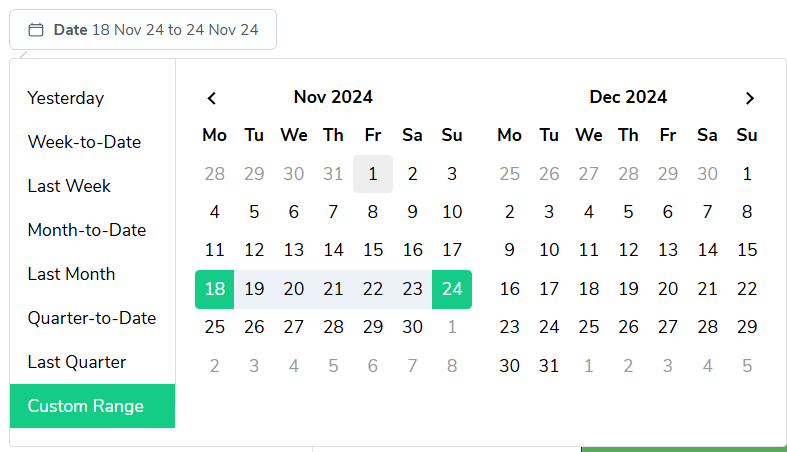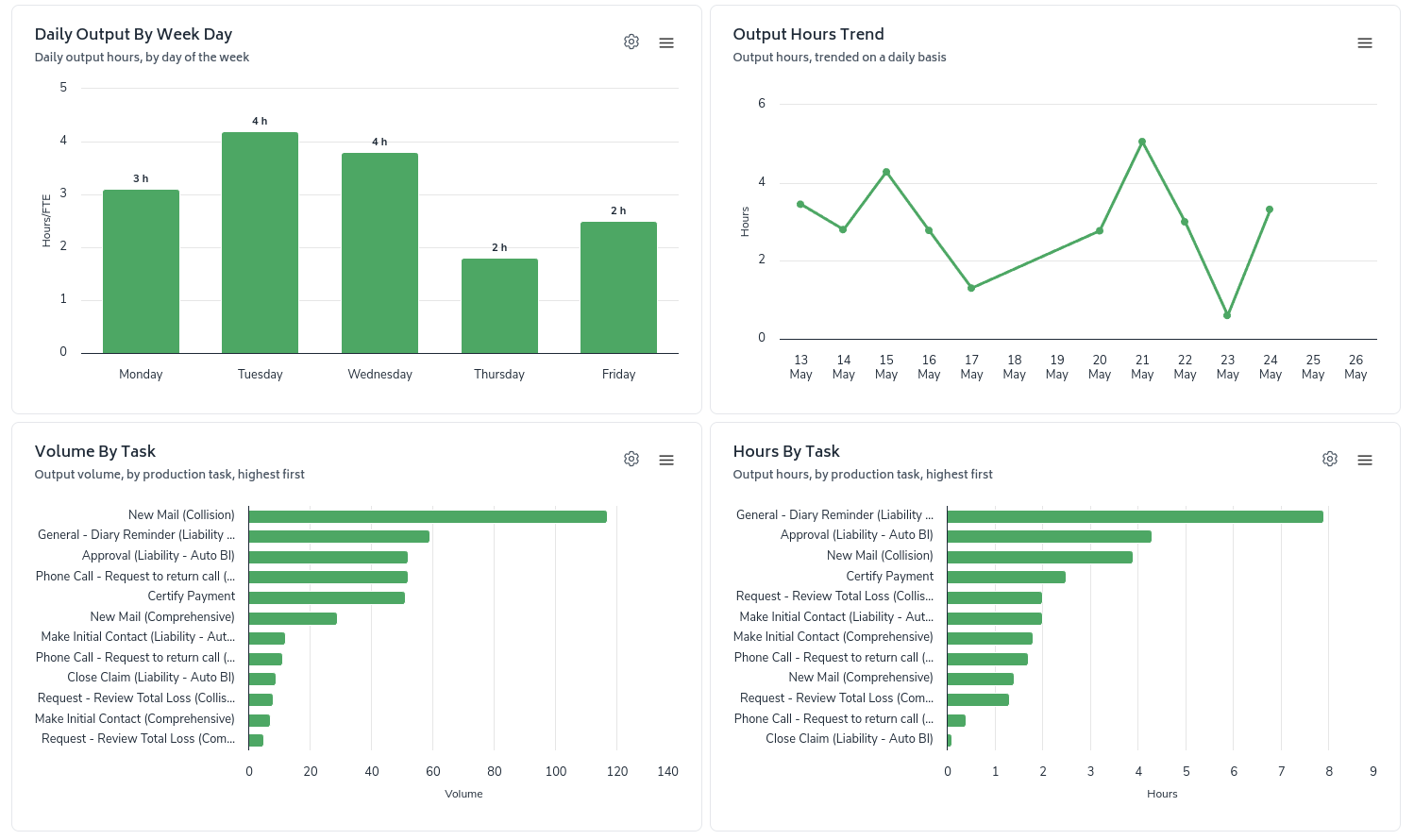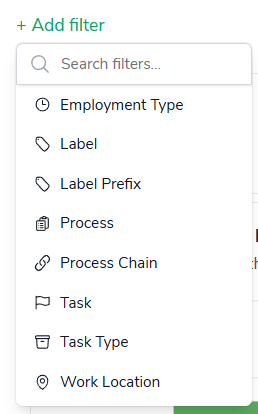We’ve designed the Output report to give you a comprehensive and accurate understanding of Production Tasks you work on.
The Output report can be accessed via the sidebar menu, navigate to Reports > Workload to open it. The module will automatically default to presenting the Output report.
As with most reports in Bramble, you can run this report over any date-range by simply selecting the time period you'd like from the date filter:

The report prominently displays three essential metrics to give you an immediate snapshot of your output:
Total Output Hours
Total Output Volume
Average Daily Output
These metrics are designed to provide a clear, intuitive understanding of your productivity.
Daily Output Bar Chart
Customizable grouping by weekday or location dimensions
Quickly identify high-performing days and areas for improvement
Output Hours Trend
Track your output hours over time to spot patterns and long-term trends
Hours and Volume Bar Charts
Customizable by weekday/location and task dimensions

Our filter menu allows for dynamic, customizable report views. Easily adjust your perspective to focus on specific time periods, or task types for more targeted analysis.

The Output report is now logically placed alongside Workload reports, making it easier to explore related concepts and metrics in your productivity analysis journey.
Leveraging the Output report With these new features, you can:
Monitor Productivity Trends: Use the Daily Output and Output Hours Trend to track your productivity over time.
Optimize Your Work Week: Analyze the Daily Output By Week Day to identify your most productive days and adjust your schedule accordingly.
Task Prioritization: Compare the Volume By Task and Hours By Task charts to ensure you're allocating time efficiently across different tasks.
Identify Training Needs: If high-volume tasks are taking disproportionately long, you may need additional training or resources.
Set Goals: Based on these metrics, set realistic goals for improving your output and efficiency.